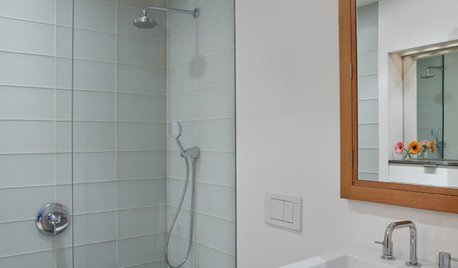Below article in today's online Wall Street Journal. This situation might have something to do with why these plans are so aggressively promoted by insurance companies.
By Anna Wilde Mathews Sept. 22, 2021 5:30 am ET
Medicare insurers drew $9.2 billion in federal payments in one year through controversial billing practices, with 20 companies benefiting disproportionately and together accounting for more than half of the total, according to federal health investigators.
The findings by the Office of Inspector General of the Department of Health and Human Services are the latest sign of growing scrutiny of Medicare Advantage insurers, which offer private plans under the federal benefit program.
The inspector general’s report focuses on certain procedures used by insurers to document health conditions, which helps determine how much they are paid. The investigators said the findings raise concerns that insurers might be gaming the process to improperly boost federal payments.
Among the 20 companies flagged in the report, the investigators found that one received approximately 40% of the questionable payments, or $3.7 billion, while enrolling only 22% of Medicare Advantage customers. The report didn’t name the company. Federal data compiled by analysts at BMO Capital Markets shows that enrollment share closely matched that of industry giant UnitedHealth Group Inc.’s UNH -0.49% UnitedHealthcare during the period covered in the report.
The company highlighted in the report “definitely stood out and looked quite different from the other companies,” Jacqualine Reid, who led the OIG team that wrote the report, said in an interview.
UnitedHealth said, “UnitedHealthcare’s in-home clinical care programs provide significant benefits to seniors and for years have been valuable offerings to ensure our members continue to receive cost-effective, appropriate care. Our Medicare Advantage risk-adjustment program is transparent and compliant with CMS rules.” CMS—the Centers for Medicare and Medicaid Services—oversees the Medicare Advantage program.
A CMS spokeswoman pointed to its responses included in the report, in which it said the recommendations would be taken under consideration and that CMS is “committed to ensuring that diagnoses that [Medicare Advantage organizations] submit for risk adjustment are accurate.”
The findings by the Office of Inspector General of the Department of Health and Human Services are the latest sign of growing scrutiny of Medicare Advantage insurers.
The new report, which The Wall Street Journal reviewed ahead of its expected release on Wednesday, focused on enrollment and documentation in 2016, and the resulting payments in 2017.
At the heart of the investigation were the ways insurers in the Medicare Advantage program document diagnoses for enrollees. The payments the companies receive from the federal government are tied to the health status of their customers. Patients with more, and more serious, diagnoses generally draw higher payments for the health plans.
The HHS inspector general’s investigation focused on two controversial strategies used by Medicare Advantage companies to tally diagnoses.
In one, the insurers or their contractors review patients’ charts for evidence of diagnoses that doctors didn’t specifically flag. The other involves health-risk assessments, or HRAs, that are often conducted by the vendors in patients’ homes.
Both strategies are allowed under Medicare rules, but “our findings raise concerns about the extent to which certain MA companies may have inappropriately leveraged both chart reviews and HRAs to maximize risk-adjusted payments,” the report said.
The report focused on diagnoses generated by these two methods that weren’t also found in the insurers’ records of services rendered to patients, implying that patients didn’t get care tied to these diagnoses.
The suspect diagnoses were linked to around $9.2 billion in payments to Medicare Advantage plans in 2017, according to the report. The 20 companies that benefited disproportionately together drew 54% of that total while representing 31% of enrollment, the report said. The remaining 46% of the $9.2 billion went to 142 companies that collectively enrolled 69% of the Medicare Advantage membership.
The unnamed large company highlighted in the report generated about 58% of the payments in the analysis drawn by health-risk assessments. Its share was particularly large in payments tied to certain diagnoses, such as respiratory arrest, protein-calorie malnutrition and major depressive, bipolar and paranoid disorders, according to the report.
The report’s recommendations include having CMS “take additional actions to determine the appropriateness of payments and care for the one MA company that substantially drove risk-adjusted payments from chart reviews and HRAs.”
UnitedHealth is the biggest player in Medicare Advantage, a major growth engine for the industry.
The total number of people enrolled in Medicare Advantage plans has risen to more than 26 million this year, according to a Kaiser Family Foundation analysis released in June. That is about 42% of all Medicare beneficiaries, up from 31% five years ago.
Concerns that insurers are inflating the “risk scores” that result from documenting enrollees’ diagnoses are longstanding, but federal prosecutors’ and investigators’ focus on industry practices has increased in recent years.
In March 2020, federal prosecutors sued Anthem Inc., alleging the Indianapolis-based insurer had fraudulently reaped overpayments from the federal government by failing to delete inaccurate diagnosis codes.
Federal prosecutors in July of this year announced they were intervening in whistleblower suits against Kaiser Permanente, also focused on risk-score documentation.
Last week, the Justice Department joined another whistleblower action, suing Independent Health Association, a Buffalo-based insurer. The suit alleged that Independent Health submitted diagnosis codes that weren’t supported by evidence.
Anthem declined to comment. Kaiser Permanente said in a previous statement that it was “compliant with Medicare Advantage program requirements, and we intend to strongly defend against the lawsuits alleging otherwise.” A spokesman for Independent Health said it denied “all allegations of wrongdoing in this lawsuit.”
In April, the HHS Office of Inspector General released an audit of diagnosis codes submitted by Humana Inc. that found the company, the-second biggest Medicare Advantage provider after UnitedHealth, was overpaid about $200 million for 2015. Humana said at the time that the inspector general’s “methodology is inconsistent with statistical and actuarial principles,” and said it would work cooperatively to resolve the review.
The HHS inspector general also released reports last year and in 2019 looking at the industry’s diagnosis-documentation practices.


















User
woodrose
Related Professionals
Surprise Furniture & Accessories · Garden City Interior Designers & Decorators · Hercules Interior Designers & Decorators · Van Wert Interior Designers & Decorators · Arvada Architects & Building Designers · Four Corners Architects & Building Designers · Middle River Architects & Building Designers · Clayton Home Builders · Glenpool Home Builders · Homestead Home Builders · Wasco Home Builders · West Whittier-Los Nietos Home Builders · Suwanee Professional Organizers · Temple Terrace Professional Organizers · Visalia Professional OrganizersTina Marie
User
Tina Marie
Moxie
3katz4meOriginal Author
pamike
pamike